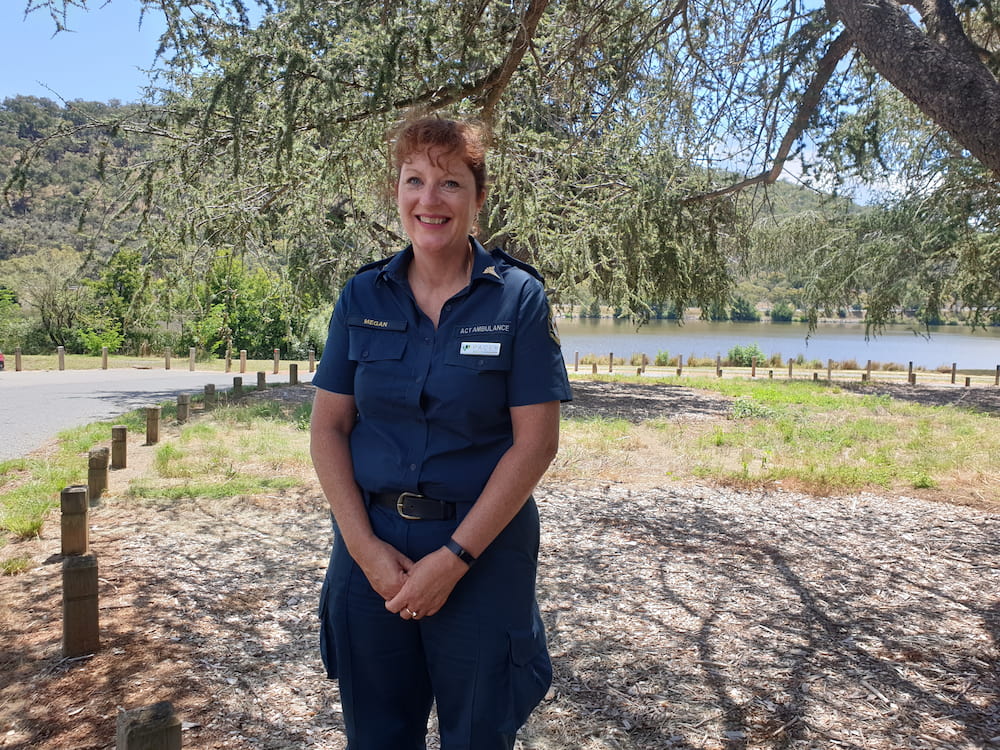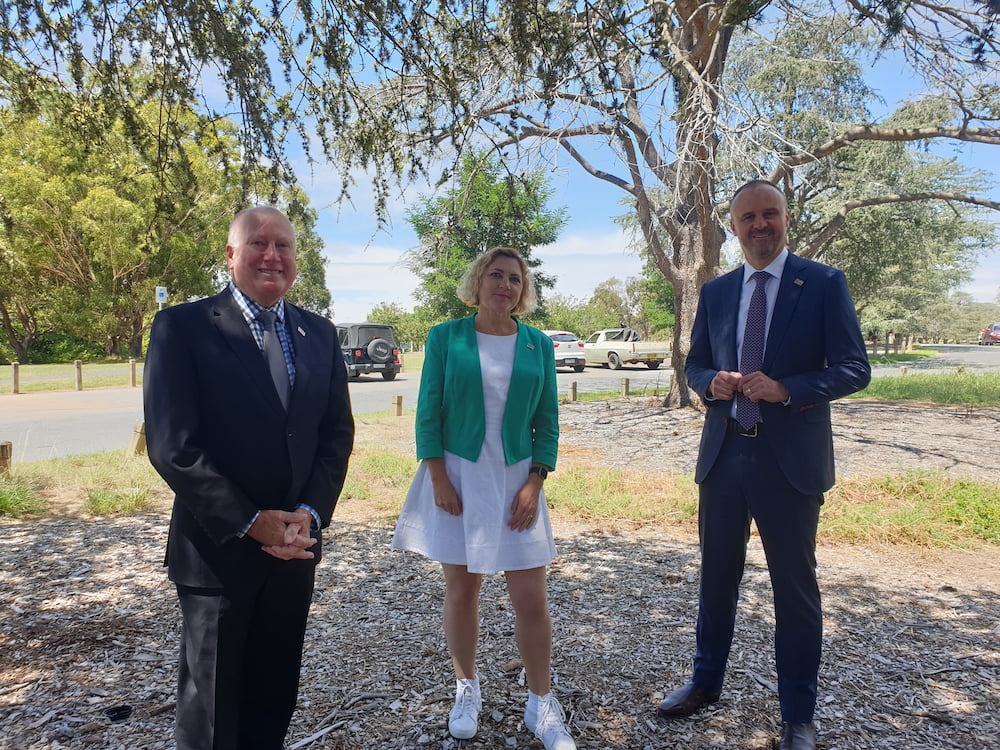Before the first Budget of the ACT’s new parliamentary term is revealed next week, the Government has recommitted to its election promise of extending PACER – Police, Ambulance and Clinician Early Response – the team that responds to mental health crises.
PACER is the star of the ACT Government’s $16 million mental health package, taking $14.1 million to extend the program to seven days a week from its current five.
PACER originated in the UK and was brought to the ACT by former Mental Health Minister and current Attorney-General Shane Rattenbury, after a research trip to the UK convinced him of its effectiveness.
For little more than a year, one team has been working five days a week, from 2pm to 10pm, and has responded to more than 1,200 callouts.
Of those, 900 people were able to stay at home and receive support in their own community, avoiding both the hospital and judicial systems.

ACT Ambulance officer and PACER coordinator, Megan Davis, said working on PACER had been the “privilege of her career” and its “trauma-informed” approach had produced amazing results.
“The community in general have really embraced the PACER teams, once everyone understands all the roles and how we work together,” Ms Davis said.
“We’ve had some really lovely feedback from the community and people with lived experience.”
Mental Health Minister Emma Davidson said because of PACER, four out of five people could safely stay in their community to access the support they need, which was “better for everyone”.
“This package is a reflection of the importance of delivering mental health services in the community,” Ms Davidson said.
“The range of education, awareness, prevention, early intervention and counselling and recovery programs that are being supported in this package is great to see.”
Ms Davidson said the 300 people who still required hospitalisation either because PACER was unavailable at their point of distress or they needed the high level of care from the Emergency Department would benefit from additional mental health hospital beds, which were being planned for.
Chief Minister Andrew Barr said PACER’s multi-disciplinary teams represented a whole of government response.
“We recognise the need to continue to invest in these areas, to involve all areas of the ACT Government, to not silo our response to mental health,” Mr Barr said.
“Importantly, this is a very significant priority for the Territory Government, and it will be one of the largest new spends in the Budget next week.
“It reflects an ongoing investment in a range of mental health programs and recognises the last 12 months has been exceptionally difficult for many in the community – and not just the last 12 months.”
Community service sector response to PACER funding
The Mental Health Community Coalition ACT (MHCC ACT) and the ACT Council of Social Service (ACTCOSS) welcomed the funding.
MHCC ACT acting chief executive Leith Felton-Taylor said all the evidence showed the mental health impact of COVID-19 was going to extend “well beyond” the end of the pandemic.
“While we welcome this extension of funding, we note that more needs to be injected into the non-government organisation community mental health sector to increase capacity of existing services and meet growing demand,” Ms Felton-Taylor said.
“This is particularly important in the early intervention and prevention programs. Waiting lists only mean that people become more unwell and that is in no one’s best interest.
“Community-based specialist services keep people out of hospital by providing support to people in their community, allowing ongoing connection to family, friends and daily activities.
“Hospital admission is distressing to individuals and their families and is also costly to our budget.”
ACTCOSS CEO Dr Emma Campbell said ACTCOSS had long been calling for investments to build a robust mental health sector reflecting Canberra’s diversity, prioritising family programs, providing good adolescent mental health programs and supporting community-based responses to mental health needs.
“Today’s announcement is a positive step towards improving and expanding mental health support and services for Canberrans including young people,” Dr Campbell said.
“However, we need more funding for community-based mental health services.”
For more news:



